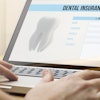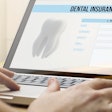
A dentist recently reached out, wanting to hire our services to outsource his insurance billing. He described needing help hiring staff with dental experience and wishing to eliminate the headache of dealing with insurance in-house.
During the conversation, he told me he still uses paper charts and nondigital x-ray films exclusively, for which he needs a film developer and extra space to store them. Regrettably, I had to inform him that his request was incompatible with our technology because he required an electronic health record (EHR) system. A remote worker must have access to all patient electronic records to bill insurance and adhere to billing rules and regulations effectively.
This failure to keep up with technology highlights a critical issue facing many dental practices today: the necessity of transitioning to EHRs to stay competitive. The dental industry is undergoing a profound technological transformation, most recently with artificial intelligence (AI) implementation.
While some practices have fully embraced the transition from paper records to EHRs, others remain stuck like dinosaurs in the past, clinging to their paper charts like security blankets. The shift to EHRs is no longer considered a trend that will go away in time. Rather, it's a necessary move toward efficiency, improved patient care, and compliance with federal regulations.
Transitioning requires many things; change and acceptance of new realities spear all. While there are many reasons why it is critical to embrace EHRs, the three most essential reasons are as follows.
Transitioning to EHR can revolutionize your dental practice's workflow
Paper records are awkward. They get lost or misfiled, they're prone to damage from floods, fire, and time, and they are difficult to organize by subject. In contrast, EHRs simplify administrative tasks, reduce documentation time, and allow you to focus more on patient care.
With EHRs, you can access patient information quickly and track medical histories, lab results, and treatment plans without the hassle of sifting through piles of paper. EHRs have built-in tools or the ability to connect with third parties that can significantly improve patient engagement.
Patient portals, for example, allow patients to access their dental records, view test results, schedule appointments, and communicate directly with their dentist or hygienist. They use automated reminders, appointment confirmations, and two-way texting to save valuable staff time. This transparency and ease of access empower patients to take a more active role in their healthcare management, leading to better outcomes and higher patient satisfaction. This system has yet to be widely implemented in dentistry.
EHRs can significantly reduce errors in documentation and patient care
Handwritten notes are often illegible, leading to misinterpretations that can impact patient care. Unfiled papers get lost, and there are no backups or copies to reproduce a patient's signed consent or treatment plan.
Digital records ensure clarity and precision, minimizing the risk of medical errors. A study published by the Office of the National Coordinator for Health Information Technology highlighted that EHRs improve clinical outcomes by reducing adverse drug events and facilitating better disease management. For example, EHRs flag patients' health conditions, drug interactions, and premedication requirements.
EHRs enhance patient care by providing an extensive view of a patient's medical history, enabling dentists to make more informed decisions and improving diagnosis accuracy and treatment efficacy. EHRs also facilitate better care coordination among providers, helping to ensure that all patient healthcare team members are on the same page.
The Health Information Technology for Economic and Clinical Health Act of 2009 incentivized Medicaid and Medicare dental providers to adopt EHRs, emphasizing the importance of "meaningful use." Meaningful use criteria include improving care coordination, engaging patients and families, and ensuring privacy and security of patient data.
Additionally, practices that do not adopt EHRs face financial penalties. Starting in 2015, providers who failed to demonstrate meaningful use experienced reduced Medicare reimbursements, beginning with a 1% reduction that increased over time for continued noncompliance. This penalty system, which is frequently updated, adds an economic motivation to switch. It is important to note that there is no legal requirement for private practice dentists to change EHRs.
EHRs offer environmental benefits
Paper records contribute to significant waste and require physical storage space. Sometimes it takes up an entire room that could be used for patient care or as provider office space. By transitioning to EHRs, practices can reduce their carbon footprint and free up valuable office space. This shift benefits the environment and creates a decluttered and professional office setting. Patients who are aware of the improved accuracy and compliance of digital records are put off when they see walls of paper charts in the office.
According to the ADA, in an ideal world, dental offices would request and receive information in real time regarding a patient's eligibility under a dental plan and information on the availability of benefits, i.e., coverage and cost on specific procedures on specific dates of service down to the individual procedure/tooth level. This information would then be provided to the patient, thus avoiding unanticipated charges following treatment. We are not there yet, but we must push forward to achieve better digital communication.
Some providers hesitate to adopt EHRs due to concerns about the cost and complexity of implementation. Change is hard. The key is that the long-term benefits of EHR systems far outweigh the initial investment. Many EHR vendors offer scalable solutions tailored to the needs of dental practices, ensuring a smoother transition. Training staff to use EHR systems effectively is crucial, but the investment in training pays off with increased efficiency and improved patient care.
Summary
The transition from paper records to EHRs is more than a technological upgrade, it's necessary to standardize communication systems in dental practices to effectively and promptly communicate with providers on the patient care team. It is also critical for timely and accurate communication with insurance companies that offer benefits for services rendered.
Don't be a dinosaur. Embrace the future of dental healthcare with EHRs.
Editor's note: References available upon request.
Estela Vargas, CRDH, is the founder and CEO of Remote Sourcing, a dental insurance billing and revenue recovery service. She is a graduate of Miami Dade College's dental hygiene program. Vargas' extensive background in the clinical arena of dentistry is coupled with her experience as a practice administrator and business executive.
The comments and observations expressed herein do not necessarily reflect the opinions of DrBicuspid.com, nor should they be construed as an endorsement or admonishment of any particular idea, vendor, or organization.



















